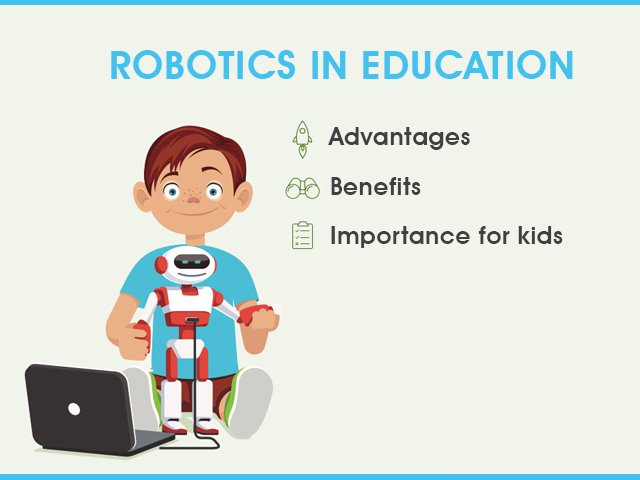Robotics in Education - Advantages, Benefits & Importance for kids

Robotics in education - Advantages, benefits & importance for kids
Robotics in education - Advantages, benefits & importance for kids
I am sure you have heard at least a few of these names, if not all - Sofia, Siri, Alexa, Cortana, Google Assistant! These are robots. Some of them are classified as AI programmes or bots, while we have Sofia who is a humanoid robot.
Robots are programmable machines or gadgets that are created to replace humans in performing a range of repetitive tasks by executing input commands. As the needs of the world keeps changing these robots also go through a change with them coming with more advanced features.
Technology and AI is the future and will be omnipresent irrespective of the domain that a child chooses to specialise in. This makes it essential for children to learn programming and robotics from an early age, and not just because it is trendy or highly in demand but because students will have huge benefits, considering that the foreseeable future will be AI driven.
Robotics courses for kids are designed to introduce age-appropriate Robotics and programming to students from an early on. It is a fun way to learn STEM.
Here is the list of benefits that students learning about robotics benefit from:
Creativity & Imagination – To design and come up with the process flow for the robot/programme imagination & creativity are necessary.


Learning to adapt to the future – Early introduction helps them to grasp concepts easily and train their brain to be more adaptive.
Teamwork – Some projects need more than one person. Collaborating with peers, they learn the concept of teamwork and its benefits.


Learning from failures/mistakes – Finding errors in design or flow does not mean the end of the project, but the need to look at it from a different way. This promotes learning from failure as a way of life and builds resilience.
- Critical thinking/Problem solving – To be able to come to a solution based on the requirements provided for developing a programme, critical thinking/problem solving mindset is essential.


Self-assessment – While executing a programme that one has developed, or testing the robot that is designed, a child develops the habit to self-assess periodically to ensure that they are progressing in the right direction. This also develops intrinsic motivation.
We at DIYA have designed online robotics courses for kids that will simultaneously engage them as well as introduce them to the online learning methodology, which is here to stay!